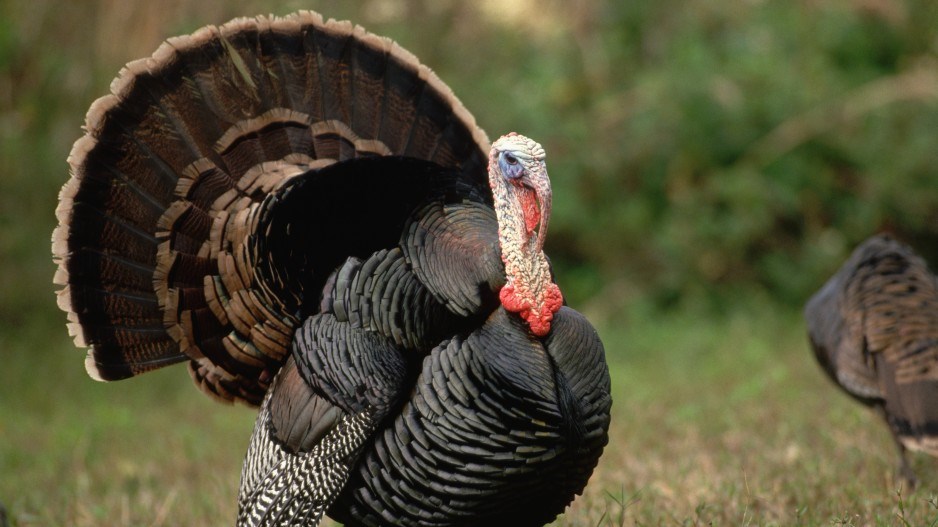A shortage of turkeys around Thanksgiving could worsen over the Christmas period, thanks to another outbreak of avian flu.
A shortage of turkeys in October was the result of avian flu outbreaks in various parts of North America in the spring. Several thousand turkey were reported culled in the Fraser Valley in the spring. Now a second outbreak has been detected on seven poultry farms in the Fraser Valley, and could exacerbate the situation, depending on how many turkey farms end up infected and how birds may need to be culled.
The Canadian Food Inspection Agency (CFIA) has placed six poultry farms in Abbotsford and one in Chilliwack under quarantine, after they tested positive fot the virus, which infects both wild and domesticated birds.
The B.C. Ministry of Agriculture and Food could not say whether any of the farms under quarantine have turkeys or whether the outbreaks might result in a cull.
The risk of avian flu increases each spring and fall with the migration of wild birds.
According to agriculture ministry, since the first outbreaks were detected in B.C. there have been 36 confirmed cases of avian flu in the province. Of those 36 cases, 14 were on commercial farms, 21 in small flocks and one in a captive wild bird.
Small flock owners and those who raise chickens or other birds in back yards are advised to take in online information sessions on Nov. 30 and Dec. 5 to learn more about their obligations. Bird owners can register here for upcoming information systems.
According to the American Center for Disease Control, an estimated 49 million birds have died or been euthanized in the U.S. since the first bird flu outbreaks in the spring of 2022. According to the CFIA, 3.7 million birds have been infected to date in Canada, 275,800 of them in B.C.




